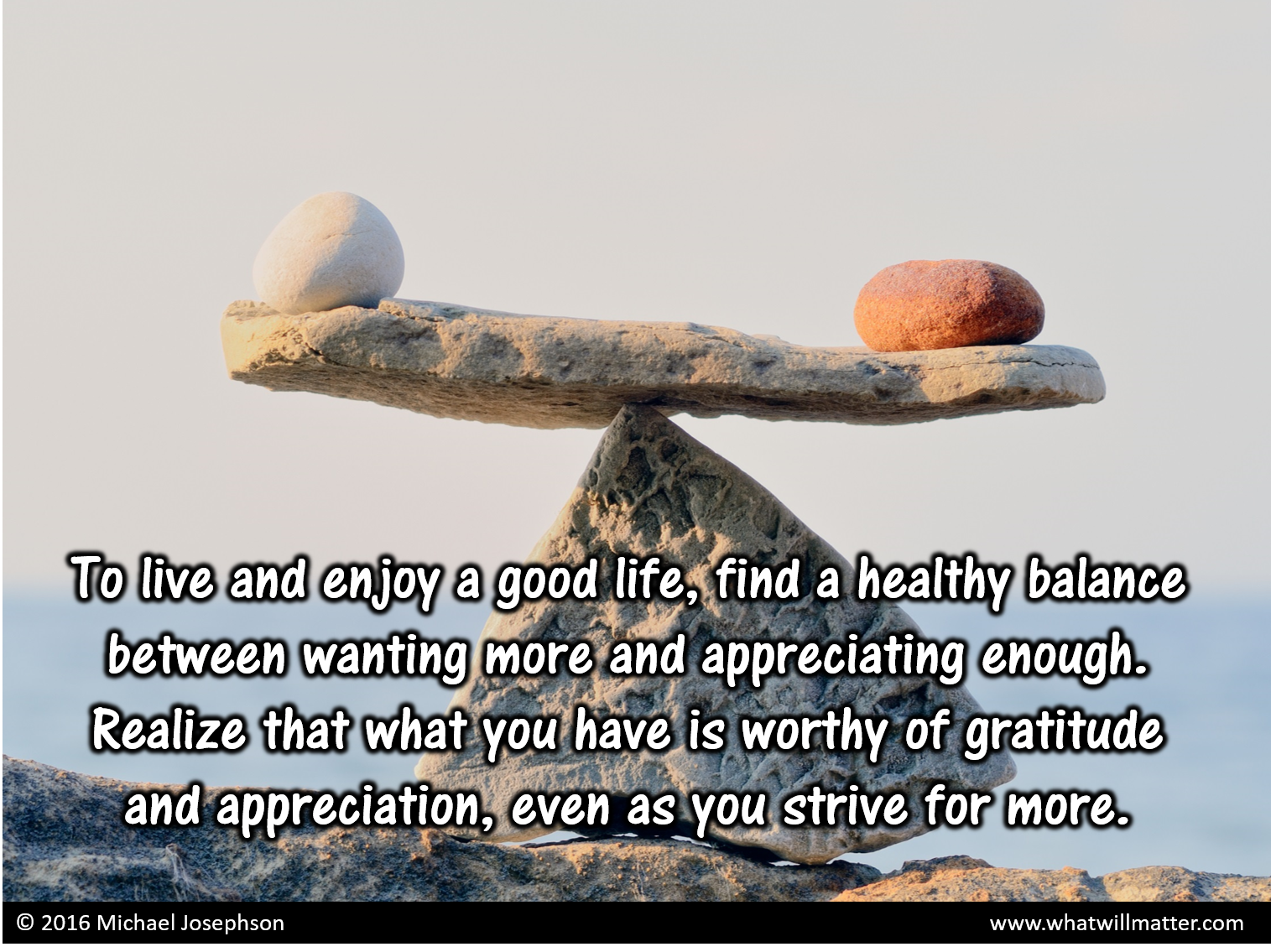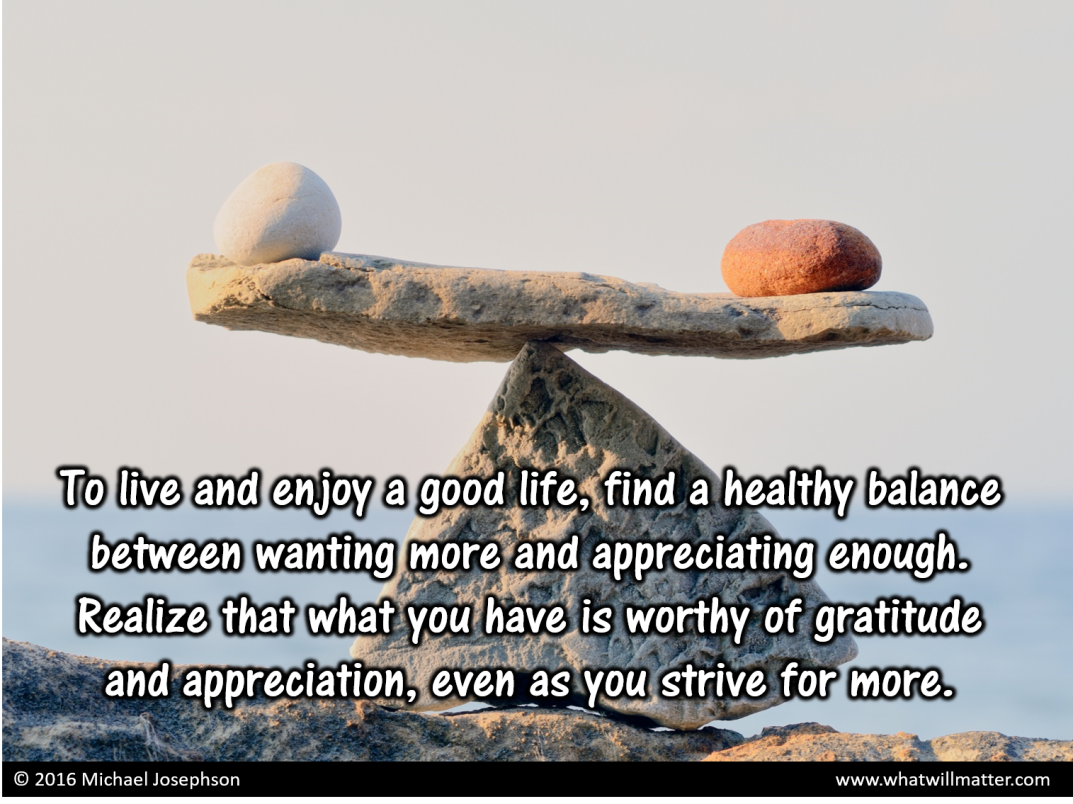 It’s both a strength and weakness of human nature that we’re never satisfied for long. Whatever we have, wherever we are, most of us want more and better. When focused on money or power, our insatiability can turn into happiness-crushing greed, avarice, and obsessive ambition.
It’s both a strength and weakness of human nature that we’re never satisfied for long. Whatever we have, wherever we are, most of us want more and better. When focused on money or power, our insatiability can turn into happiness-crushing greed, avarice, and obsessive ambition.
But in many other areas of our life, our desire for more and better can be a very good thing. For example, in business we should continually strive for improvement and innovation. Similarly, when we assess the quality of our educational or healthcare systems, government integrity or efficiency, or the general state of social justice, we should never be satisfied.
Even in our personal lives, we should strive for better relationships by improving communications and organizing our lives better. And there’s nothing wrong with wanting a better job, one that’s more intellectually challenging, emotionally rewarding, financially remunerative, and socially significant.
To live and enjoy a good life, we need to find a healthy balance between wanting more and appreciating enough. You see, it’s possible to realize that what we have is worthy of gratitude and appreciation, even as we strive for more.
Not being satisfied doesn’t have to be the same as being dissatisfied. Dissatisfaction is a negative state of mind. It’s a form of unhappiness. Thus it’s important to find a comfortable place between satisfaction and dissatisfaction. That place can be the state of contentment marked by true appreciation of what one has and the ability to enjoy it.
In the progression of good, better, and best, better and best are superior to good. But good is still good. Enough can be good.
This is Michael Josephson reminding you that character counts.

